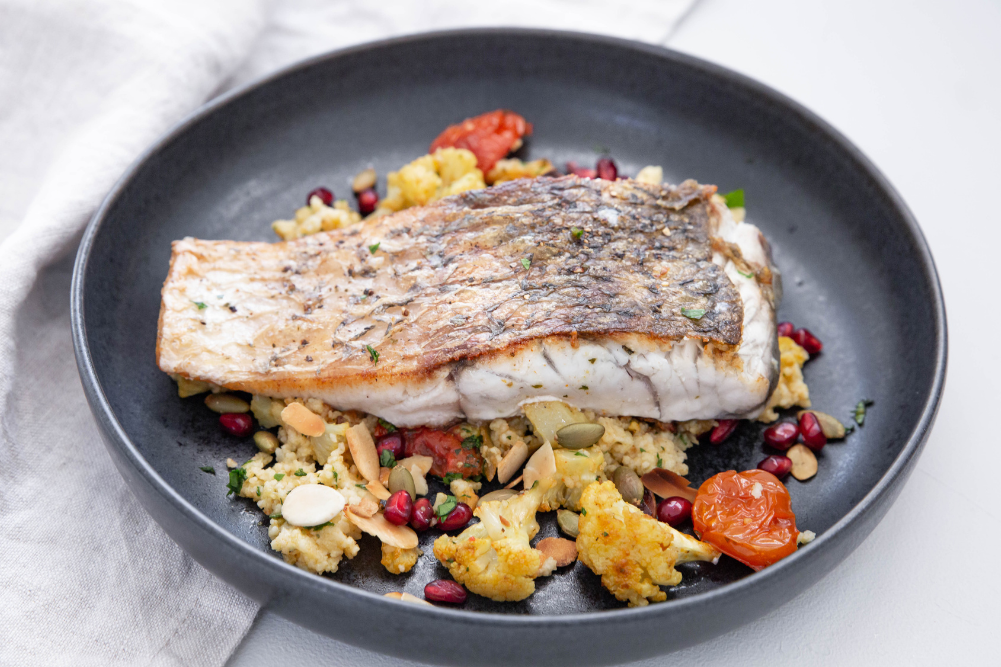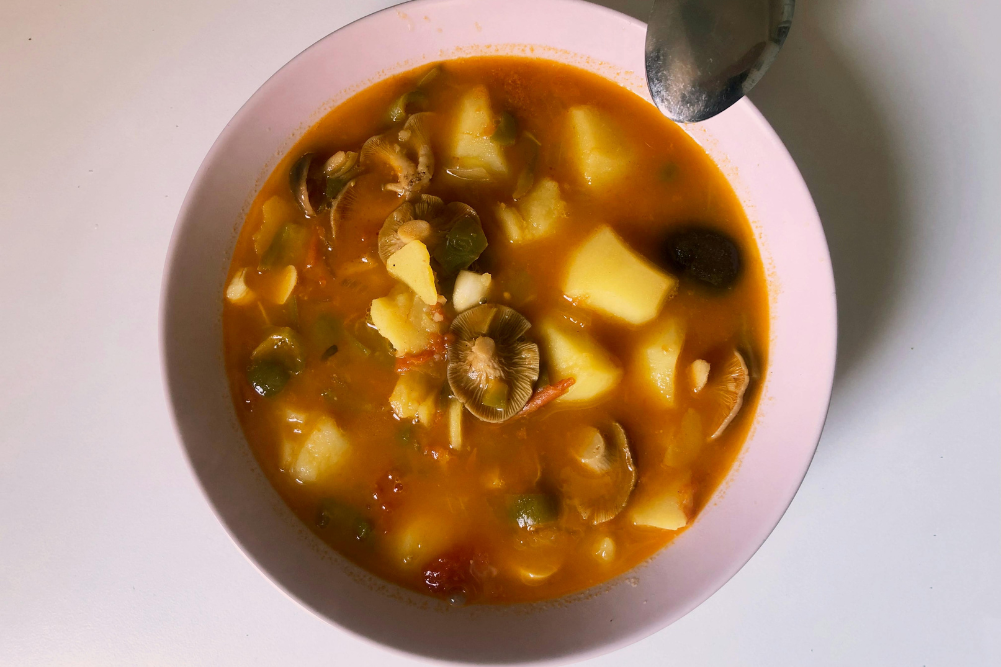How much protein do you really need?
If you are tired, untoned, craving carbs, losing hair and often sick, you may be protein-deficient. Ensuring proper protein intake and assimilation helps boost energy, bulk muscles, build bones, stabilise blood sugar, thicken hair, strengthen nails and increase immunity.
Protein is an essential component of DNA, tissues, antibodies, enzymes, haemoglobin and hormones. It’s a popular part of weight-loss and body-building programs. As studies prove, protein helps burn calories, fills you for longer, curbs cravings, feeds muscles and transports vitamins and electrolytes.
You don’t need every amino acid in every bite; you just need an adequate amount daily.
Protein is a macronutrient that comprises the bulk of your body if you don’t count the water content — 75 per cent of the rest — and without it you would waste away. There are at least 10,000 proteins in your body made of amino acid chains. Of these 200-plus amino acids, only 22 are understood. Nine amino acids are essential to eat because you can’t make them. These are histidine, isoleucine, leucine, lysine, methionine, phenylalanine, threonine, tryptophan and valine. The remaining are considered non-essential as our cells supply them.
Food breaks down into amino acids, which circulate and combine to form proteins, which are stored for short periods if unused. We also scavenge essential amino acids from abundant bacteria in the lower intestine when required.
Protein “combining” fallacy
Previously, it was advised that we should eat all essential amino acids in careful combination each meal for proper protein absorption. Scientific studies have now invalidated this. Though some foods — such as beans, meat, fish, dairy and quinoa — contain all essential amino acids, they don’t suit everyone.
Protein is so pervasive that, provided we eat enough calories, it’s almost impossible not to get enough daily protein to provide the amino acids our bodies require. You don’t need every amino acid in every bite; you just need an adequate amount daily. Variety is key to obtaining all necessary nutrients, not just protein. This means that, just like elephants, rhinos, hippos and gorillas, you can obtain ample protein from plant-based foods.
More is not more
Since protein’s discovery in 1839, its importance has been emphasised to the point of overkill. People in developed countries eat adequate protein but may have assimilation issues. People in poor countries suffer kwashiorkor, or protein deficiency, symptoms of which include distended abdomen, stunted growth, muscle wasting, low immunity, heart weakness, respiratory problems and eventually death.
… just like elephants, rhinos, hippos and gorillas, you can obtain ample protein from plant-based foods.
However, in the Western world, a typical diet has excess protein. The average American takes in over twice the amount of protein required, according to the Physicians Committee for Responsible Medicine. Even vegetarians consumed twice the minimum daily protein requirement, according to a Harvard study.
But how much is too much? The adult RDA for protein is 0.8g per kilogram body weight, which is about 56g of protein a day for men and 46g for women. For children aged 4–13, the advised daily protein dose is 0.95g per kilo and for 14–18 years it’s 0.85g per kilo. Needs increase with pregnancy and exercise. This protein allowance is more than met, according to the latest What We Eat in America report.
Men 20 years and over get an average of 98.9g of protein a day, and women over 20 get 68g. Pouring excess fuel in your car is superfluous, but overloading your body with protein is worse than that; it’s problematic. Here’s how high protein can break the body down rather than build it up:
- Processing protein creates a urea by-product that’s flushed out with water. Excess protein puts strain on the kidneys and drains vital water from the body. Deficient fluid leads to dehydration. Early signs to watch for are headaches, constipation, dry skin, dry mouth, tiredness, memory loss and joint aches. In the long term, it creates inflammation, seizures and physical deterioration. Experts advise drinking around 2.3L of water per 100g of protein.
- Many factors contribute to bone density, including diet, digestion, exercise and injury. Studies suggest protein from dairy and meat increases blood acidity, which is buffered by bone calcium, leaving the skeleton depleted. In a Nurses’ Health Study, for example, women who ate more than 95g of protein a day were 20 per cent more likely to have broken a wrist over a 12-year period when compared with those who ate an average amount of protein.
- Low energy. Research reveals that protein requires the most calories to digest. This takes energy that tires us if intake is excessive. Oxygen is needed to digest protein, which deprives muscles of energy when taken close to exertion. One study showed that subjects felt exercise was harder one hour after having a high-protein meal compared to those having only water.
- Weight gain. Protein helps you shed fat, but studies show that the body stores excess protein as fat. This can lead to almost 0.9kg of weight gain per month. A 2012 study found people on a high-protein diet gained the same amount of fat as people assigned to a low-protein, high-fat diet.
- High-protein diets can lead to excess ammonia, a normal by-product of processing protein. Ammonia overload results in fatigue, muscle weakness, loss of appetite, nausea, vomiting, diarrhoea, back pain or other symptoms of liver and kidney damage.
- Gastrointestinal issues. Poor protein absorption can result in allergies, nausea, bloating, gas, inflammation, constipation and diarrhoea.
- Loading up on protein while cutting carbohydrates reduces serotonin, our feel-good hormone. Many researchers link low serotonin to depression.
- Protein is just one component of healthy nutrition. Living on protein shakes or meat is unbalanced. You need fibre, nutrients and water from diverse dishes for a balanced diet.
Processing protein
If eating protein gives you gas, mucus, fatigue, pain, constipation or diarrhoea, you probably have problems digesting it. Experiment with different proteins, taken at varied times and in small quantities. Protein’s bioavailability depends on healthy levels of hydrochloric acid, enzymes, bile and gut flora.
Try these tips for optimal protein absorption:
- Prefer protein in the morning or noon after exercise.
- Ayurvedic doctor Rama Prasad suggests protein shouldn’t be taken within four hours of sleep: “Digesting heavy protein disturbs sleep and stagnates when inactive. This causes acidity, fermentation and gas.”
- Chew each mouthful 20 times and swallow liquids slowly.
- Before meals, take two teaspoons of apple cider vinegar.
- With meals, take digestive enzymes high in protease.
- Drink digestive chai with fennel seeds, cardamom pods, cloves, cinnamon, ginger and dandelion root for the liver.
- When cooking legumes, soak overnight and drain away water. Skim off foam while cooking to remove gassy phytates and eat with cumin or hing (asafoetida).
- Take fermented prebiotic foods such as kefir, plus a probiotic powder.
Protein powders
Obtaining protein from foods such as fish, eggs, beans, nuts and wholegrains is considered ideal. However, supplementation is valuable if you are training, dieting, pregnant, rehabilitating, growing or suffering malabsorption.
Sipping a protein smoothie is a simple way to ensure you are getting your daily dose. Be aware that additives such as pectin or sugars may affect your digestion. Also avoid high-arginine protein powders if you get cold sores. Here’s a summary to help you select from the plethora of products the powder that suits you.
Pea
This alkalising sweet yellow protein derivative is highly digestible and hypoallergenic. It’s also gluten-, lactose- and cholesterol-free. Though pea is low in cysteine and methionine amino acids, combining it with rice protein makes it complete. The isolate has higher protein than pea protein powder, but both have high protein bioavailability. The water-based extraction process makes pea protein a natural product. Pea protein has 25g of protein per 30g scoop, while many whey proteins contain only 23g of protein. Choose pea protein if you’re vegetarian, vegan or have delicate digestion.
Rice
Rice protein powder is ideal for adding to baked dishes or pancakes. Though low in lysine, rice is another highly digestible vegan protein source. This low-allergy concentrate is made through a natural enzyme process yielding 80–90 per cent digestible protein. Clinical tests have shown it’s as effective as whey at building muscle and aiding recovery. Rice is lactose-free and rich in thiamin, riboflavin, niacin, phosphorous, iron and potassium. Rice protein isolate is commonly mixed with pea protein to complete the amino acids and soften its chalky texture.
Whey
Taking whey, which is not plant-based but a dairy by-product and therefore not suitable for a vegan diet, is a way to build muscle mass and repair tissue. This rapidly absorbed protein contains all essential amino acids and comes in three forms. Whey protein concentrate (WPC) is the cheapest but has fat, lactose and less protein than the others. Whey protein isolate (WPI) and hydrolysed whey protein isolate have no fat or lactose. Hydrolysed WPI is the most expensive and the fastest to absorb. Depending on the make, WPI also contains vitamins A, C, B-complex, manganese, phosphorus and calcium. A blend of WPI and WPC makes it more affordable. Organic products are preferable unless you want to risk having hormones and pesticides with your protein. Take as a post-workout shake for optimal results. Watch for whey allergy signs such as mucus, bloat, cramps, constipation or diarrhoea.
Soy
As soy contains all essential amino acids, it builds and maintains muscle. The best source of soy protein is fermented tempeh or natto, being free from anti-nutrient phytates and enzyme inhibitors that block protein digestion. Though it can be a great vegan protein source, unfermented soy has its critics. Soy can be difficult to digest because of its enzyme inhibitors, gas-forming phytates and allergen 30-kD. It’s also difficult to digest, with the body absorbing only 57 per cent of protein from it. Some suggest soy’s oestrogen-like isoflavones are risky for women with oestrogen-related cancers and men with lower testosterone levels. If you want the highest soy-protein powder, prefer soy isolate, but if you want one with reduced isoflavones, choose soy-protein concentrate, non-GMO (soy is one of the more common GM crops). High doses of soy are not advised for children or pregnant women.
Hemp
Though hemp seeds have high protein, they won’t get you high. Hemp is not as protein-packed as other options with just 10–15g per scoop, but it has bonus fibre, omega-3 fatty acids, magnesium, zinc, iron and calcium, plus easily absorbed proteins edestin and albumin, which build antibodies. Mix it with other proteins as a meal replacement or body-building supplement.
Spirulina
Spirulina provides up to four times the protein of fish or beef, along with vitamin B12, iron and betacarotene. With 85–95 per cent digestible protein, it’s easily absorbed, having no cellulose cell walls. Spirulina is a great energiser and can reduce cholesterol with its gamma-Linolenic acid. People with hyperparathyroidism or seaweed allergies are advised to avoid it.
For some delicious plant-based recipes, visit here and here.








